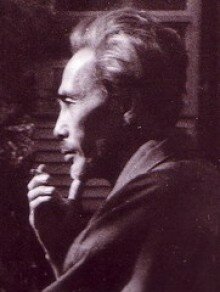Imtiaz Unbound
Poet Jerry Pinto meets Imtiaz Dharker to discuss God and the Devil.
Imtiaz Dharker does not write difficult poetry.
She is a difficult poet because she subverts what you think poetry should be. She began her poetic career with Purdah, a precise, quiet book, one that immediately established her as an important voice in Indian English poetry. This was a poetry we recognised, formal, precise, language used like a scalpel, images deployed in a style that was lapidary.
Next came Postcards from God, in which many of the poems had overtly political overtones. This was a much more difficult book because the quietness was banished. Rage had turned some of the poems into posters, the images into slogans. The tone was casual, almost throwaway. It was only over time that the casual register, the overtly politicised language revealed itself as the only way to confront the enormity of late 1992 and early 1993 when India was rocked by the riots that followed the demolition of the Babri Masjid at Ayodhya in northern India by right-wing Hindus. The events at Ayodhya changed many things for Indian Muslims; Imtiaz’s poetic register recorded that change.
She spoke for God even as someone whose beliefs had been eroded. Now, she speaks for the devil in I Speak for the Devil.
“Yes, I was speaking for God and as you suggest, a female God. Only a female God would be so bewildered and so willing to let it show (okay, maybe there are some men who might be willing to be vulnerable and confused). These personae should not be seen solely in the light of a dualistic faith. The final act of faith can only be an act of love. God is who you can be; so is the devil. Both, poetically speaking, were ways in which I was trying to create an interface with the outside world.”
I Speak for the Devil (recently released by Penguin India) does not feature a Miltonic Lucifer, Faustian double-dealer or sulphurous Beelzebub. He lurks in the khassi (a Brit-Punjabi word for the toilet that seems to be part of a private idiolect); he possesses people; he turns up as the television. He can even be confused. “Of course he is confused,” she shrugs. “Why should the devil be a monolithic unitary figure?”
Beyond the confusion is anger, acidic dribbles of rage as precise as the design of frost on a window.
Men have a rare genius
for revenge.
Spare me,
I don’t know how the system works.
(‘Slit’)
But there is another anger, which may not work. Take this section from ‘They’ll say, ‘She must be from another country’ ’:
Maybe there is a country
where all of us live,
all of us freaks
who aren’t able to give
our loyalty to fat, old fools
the crooks and the thugs
who wear the uniform
that gives them the right
to wave a flag,
puff out their chests,
put their feet on our necks
and break their own rules.
It seems far too spelt-out, far too enunciated. “I wanted it to be rough,” she explains. “I wanted it to be angry. I wanted to write a rabble-rousing poem and this is as rabble-rousing as I can get.”
Imtiaz also draws black and white sketches on the edge of reason. “Everything starts with the image: sometimes as the line of a poem, sometimes as something I see as a visual, a drawing. No, that’s not always true. Sometimes a poem can start with an idea and that can in turn spark off a drawing.”
For years, she says, she kept her engagements with these two arts apart. Now they have fallen into each other. Poet and art critic Ranjit Hoskote has called them “poems amplified by drawings” to which Imtiaz only wants to add, “drawings amplified by poems.”
But there’s much wit here, much cleverness. And always that turn of phrase that suddenly sets you back. ‘Canvas’ begins innocently enough: “Every day I try to re-draw my face.” It builds, dragging you with it:
Over this, I paint another face
that smiles.
Then I rub it off. I don’t want
a face that simpers harmlessly
like this.
Some day I plan to draw it
Interesting, dangerous,
cruel.
For one moment, a flash of the face of the devil. This is where you were headed. Not to hell. Not to heaven. Between.









